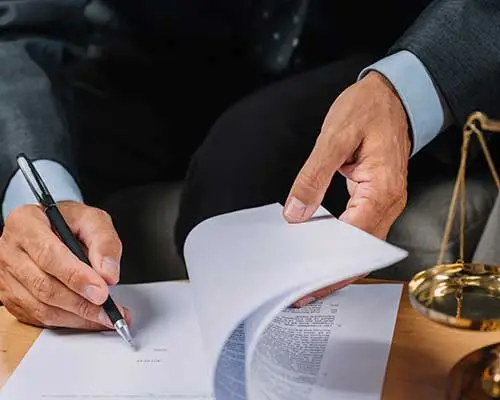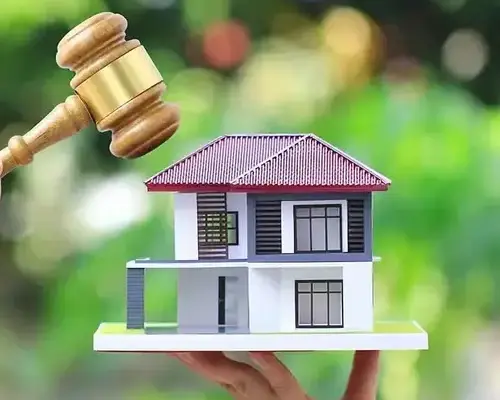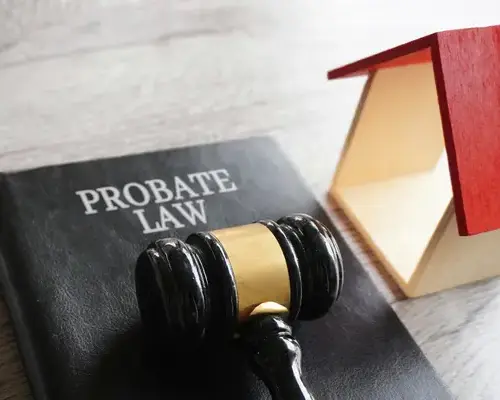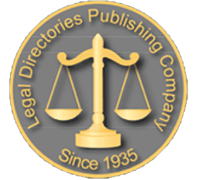How a Partnership Dispute Lawyer Can Help You
A dispute with your business partner puts more than just your professional relationship at risk—it threatens your financial investment, your hard work, and the company’s future. What starts as a minor disagreement over expenses or strategy can quickly spiral into a serious conflict that brings operations to a standstill. When you’re at a deadlock, every decision feels critical. This is when you need a clear-headed advocate on your side. A partnership dispute lawyer can assess the situation objectively, explain your legal options, and implement a strategy to protect your interests. This guide outlines the steps to take to regain control and find a viable solution.
Key Takeaways
- Your Partnership Agreement Is Your Most Important Tool: A well-drafted agreement is your first line of defense. By clearly defining roles, responsibilities, and a process for handling disagreements from the start, you can prevent most conflicts before they begin.
- Act Early to Preserve Your Options: Contacting a lawyer at the first sign of trouble isn’t about starting a fight; it’s about finding a solution. Early legal advice opens the door to less confrontational options like negotiation and mediation, saving you time, money, and stress.
- Resolution Doesn’t Always Mean a Lawsuit: The primary goal is to find a practical outcome that protects your investment. An experienced attorney will explore all avenues, such as a partner buyout or a mediated settlement, and will only turn to litigation when it’s the necessary last step.
What Does a Partnership Dispute Lawyer Do?
When you start a business with a partner, you’re usually focused on the exciting road ahead, not potential roadblocks. But disagreements happen. A partnership dispute lawyer is a specialist who steps in when communication breaks down and the business relationship is at risk. Think of them as a strategic guide who can protect your interests and find a clear path forward. They bring legal expertise and a level head to emotionally charged situations, helping you sort through the complexities of partnership law so you can get back to focusing on your business.
Their Areas of Expertise
A partnership dispute lawyer specializes in resolving conflicts between business partners. Their work covers everything from disagreements between general partners who manage daily operations to issues involving limited partners with a more passive role. They provide crucial legal guidance on navigating your partnership agreement and ensuring everyone is meeting their legal obligations, known as fiduciary duties. This specialized focus on business law and litigation means they have the experience to handle the unique challenges that arise when business partners are at odds. They help you understand your rights and find the best path forward.
Common Disputes They Handle
Disagreements in a partnership can stem from many sources, and a dispute lawyer has likely seen them all. They frequently handle conflicts that arise from unclear terms in the original partnership agreement—a common issue when businesses grow and evolve. Other frequent problems include allegations of fraud, breaches of fiduciary duty (when a partner acts against the business’s best interests), and power struggles over business control. Financial disagreements, such as how profits are distributed or how expenses are managed, are also a major source of conflict. These attorneys also step in to manage disputes over a partner buyout or the forced removal of a partner from the business.
How They Can Help You
The primary goal of a partnership dispute lawyer is to resolve your conflict as efficiently as possible. They often start with negotiation, working directly with the other party’s legal counsel to find common ground and reach a settlement without going to court. If direct talks don’t work, they might suggest mediation, where a neutral third party helps facilitate a productive conversation. This process empowers you and your partner to find a mutually agreeable solution. Of course, if a fair agreement can’t be reached, your lawyer is prepared to represent your interests through litigation. By getting an experienced attorney involved early, you can often find a resolution that saves you time, money, and stress.
Know Your Rights and Responsibilities as a Partner
Going into business with someone is built on trust, but it’s also a legal relationship with specific rights and duties. Understanding these from the start is one of the best ways to protect your investment and your professional relationship. When every partner knows where they stand, it’s much easier to manage expectations and handle disagreements before they escalate. This knowledge isn’t just for preventing problems; it empowers you to act confidently and fairly within your business, ensuring everyone is working toward the same goals.
A clear grasp of your role and obligations forms the foundation of a healthy partnership. It helps you identify when a line has been crossed and gives you the framework to address it. Whether you’re just starting out or have been in business for years, taking the time to understand these core principles is a crucial step in building a resilient and successful company. It’s about being proactive rather than reactive, and setting your partnership up for long-term success instead of a potential breakdown.
Defining Partner Authority
Who has the final say on big decisions? How are day-to-day tasks managed? These questions should never be left to chance. A strong partnership agreement is essential because it clearly outlines each partner’s roles, authority, and responsibilities. This document acts as your business’s rulebook, defining how decisions are made, how money is handled, and what happens when you disagree. Without this clarity, you open the door to misunderstandings and power struggles. An experienced business law attorney can help you draft an agreement that specifies each partner’s authority, ensuring everyone is on the same page from day one.
What Are Fiduciary Duties?
When you become a business partner, you take on what are known as “fiduciary duties.” This is a legal way of saying you must act in the best interest of the partnership and your fellow partners, not just yourself. These duties include the duty of loyalty (putting the partnership’s interests first) and the duty of care (acting responsibly and not recklessly). It means you have to be honest and transparent in all your business dealings. Hiding information, taking a business opportunity for yourself, or misusing company funds are all examples of breaching these fundamental duties and can lead to serious legal consequences.
Your Financial Obligations
Money is one of the most common sources of conflict between business partners. Your financial obligations go beyond your initial investment. They include how profits and losses are shared, how business expenses are approved, and whether partners can take draws or salaries. Disagreements often arise over how to use company funds or who has control over the bank accounts. Your partnership agreement should spell all of this out in detail. Being transparent about the company’s finances and sticking to the agreed-upon rules is critical for maintaining trust and ensuring the financial health of your business.
Your Right to Access Business Records
As a partner, you have the right to know what’s going on with the business’s finances and operations. This means you are entitled to access the company’s books and records, including financial statements, contracts, and bank account information. This transparency is crucial for accountability. If you suspect that funds are being misused or the business is being mismanaged, you have the right to investigate. In some disputes, partners may need to ask a court to formally “open the books” through a process called an accounting to get a clear picture of how money was spent.
When Should You Call a Partnership Dispute Lawyer?
Deciding when to involve a lawyer in a partnership issue can feel like a huge, irreversible step. But thinking of it this way is a mistake. Reaching out for legal advice is a proactive move to protect your business, your investment, and your professional relationships. It’s not about starting a fight; it’s about finding a clear and fair solution. Contrary to what many believe, most conflicts can be resolved without dissolving the business, especially when you have the right guidance. An attorney can help you understand your options and find a path forward before a minor disagreement becomes a major crisis.
Recognize the Early Warning Signs
Partnership disputes rarely happen overnight. They usually begin as small issues that fester and grow over time. If you notice any of the following red flags, it’s a good idea to seek legal counsel before things get worse:
- Communication Breakdown: Conversations with your partner are consistently tense, unproductive, or have stopped completely.
- Financial Disagreements: You’re arguing over expenses, how profits are distributed, or who has access to financial records.
- Breach of Fiduciary Duty: You suspect a partner is putting their own interests first, competing with the business, or misusing company assets.
- Unbalanced Contributions: One partner isn’t pulling their weight, leading to frustration and resentment over unequal workloads.
- Strategic Deadlock: You and your partners are at a complete standstill on important decisions about the company’s future.
Addressing these problems early with the help of a business litigation expert can stop them from spiraling out of control.
Why Timing Is Critical
Many business owners put off calling a lawyer because they worry it will make the situation more hostile or expensive. In reality, waiting too long can cause much more damage. Early legal intervention opens the door to a wider range of solutions, many of which are less confrontational and more cost-effective than a lawsuit. A common misconception is that hiring an attorney means you’re immediately going to court. The truth is, a lawyer’s first goal is often to find a resolution through negotiation or mediation. Getting advice early gives you a clear picture of your rights and obligations, empowering you to make smart decisions before the conflict escalates and your options narrow.
How a Lawyer Protects Your Interests
When a dispute arises, a partnership dispute lawyer acts as your advocate, focused on protecting your personal and professional interests. They will start by reviewing your partnership agreement to clarify everyone’s roles and responsibilities, which helps ground the conversation in facts, not emotions. If there’s evidence of serious misconduct like fraud or theft, an attorney can take immediate action to secure business records, protect trade secrets, and even seek emergency court orders to prevent more harm. Our team of experienced attorneys can help you work through the complexities of Florida partnership law, ensuring your rights are protected while you stay focused on what matters most—running your business.
What to Expect from the Resolution Process
When you’re facing a partnership dispute, the path forward can feel uncertain. The good news is that resolving these issues doesn’t always mean a dramatic courtroom battle. The process is often a series of strategic steps designed to find the most effective and efficient solution for your specific situation. It starts with a clear assessment of your case, moves through negotiation or mediation, and only turns to litigation when absolutely necessary.
An experienced business law attorney will guide you through each stage, helping you understand your options and make informed decisions. The primary goal is to protect your rights and your investment in the business while working toward a resolution that aligns with your long-term goals. Whether that means restructuring the partnership, negotiating a buyout, or dissolving the business, a structured approach ensures you’re always moving in the right direction.
The First Step: Consultation and Assessment
Your first move should be to schedule a consultation with a partnership dispute lawyer. This initial meeting is crucial. It’s your opportunity to share the details of your situation, and it’s the attorney’s chance to understand the conflict, review your partnership agreement, and assess the legal standing of your case. They will ask questions to get a full picture of the business operations, the nature of the disagreement, and what you hope to achieve.
During this assessment, your lawyer will identify the strengths and weaknesses of your position and outline potential strategies. This isn’t just about getting legal advice; it’s about creating a clear roadmap for what comes next. Acting quickly is important, as it allows your attorney to take immediate steps to protect your interests and the business itself.
Exploring Negotiation and Mediation
After the initial assessment, the next step is often to try and resolve the dispute without going to court. This usually starts with negotiation, where your lawyer communicates directly with your partner or their legal counsel to find a mutually agreeable solution. This process is less formal and can be a quick way to settle disagreements if both parties are willing to compromise.
If direct negotiations don’t work, mediation is another excellent option. A mediator is a neutral third party who facilitates a structured conversation between you and your partner. They don’t take sides or make decisions for you; instead, they help you communicate more effectively and guide you toward a solution you can both live with. Mediation is confidential, less expensive than litigation, and gives you more control over the final outcome.
When Litigation Is Necessary
While most business owners hope to avoid it, sometimes litigation is unavoidable. This step is typically a last resort, taken only when negotiation and mediation have failed or if one partner is acting in bad faith, such as stealing assets or breaching their fiduciary duties. Filing a lawsuit may be the only way to enforce your rights and protect the business from further harm.
A common misconception is that legal action is the first step, but it can be a time-consuming and costly process. If your case does go to court, your attorney will handle everything from filing the initial complaint to representing you in hearings. Having a skilled litigation lawyer is essential to present your case effectively and work toward a favorable judgment.
Other Ways to Resolve Disputes
Beyond negotiation and litigation, there are other practical ways to resolve a partnership dispute. One common solution is a partner buyout. If you and your partner can no longer work together, one of you might offer to buy out the other’s stake in the business. This allows the company to continue operating without interruption. Your partnership agreement should ideally outline the process for how a buyout would work, including how to value the business.
Another option is a voluntary dissolution. In this scenario, all partners agree to wind down the business in an orderly fashion. This involves paying off debts, liquidating assets, and distributing any remaining profits. Agreeing to dissolve the business amicably can save everyone the stress and expense of a court-ordered dissolution.
How to Create a Strong Partnership Agreement
The best way to handle a partnership dispute is to prevent it from happening in the first place. A strong, comprehensive partnership agreement is your business’s first line of defense. Think of it as a roadmap for your professional relationship, outlining how you’ll handle everything from daily operations to unexpected challenges. While it might feel like an overly formal step when you’re excited to start a new venture with a trusted partner, creating this document forces you to have crucial conversations early on.
Putting everything in writing clarifies expectations and provides a clear framework for resolving issues. A well-drafted agreement protects not only the business but also each partner’s individual investment and interests. It’s a foundational document that can save you significant time, money, and stress down the road. An experienced business law attorney can help you draft an agreement that is tailored to your specific business needs and complies with Florida law, ensuring all partners are on the same page from day one.
Key Clauses to Include
A strong partnership agreement should be detailed and unambiguous. It needs to clearly define the structure and rules of your partnership. Essential clauses should cover each partner’s roles and responsibilities, initial capital contributions, and how profits and losses will be distributed. It’s also critical to outline the decision-making process. For example, will decisions require a unanimous vote or a simple majority? What happens if there’s a tie? Addressing these questions now prevents power struggles later. The agreement should also specify the process for bringing on new partners or handling the departure of an existing one. Getting these details right is a core part of solid corporate formation.
Adding a Dispute Resolution Clause
No matter how well you get along with your partners, disagreements are bound to happen. A dispute resolution clause specifies the exact steps you’ll take to resolve conflicts before they escalate into costly litigation. This clause often requires partners to attempt mediation, where a neutral third party helps facilitate a mutually agreeable solution. If mediation fails, the next step might be binding arbitration, which is a more formal process but still less expensive and time-consuming than a lawsuit. By pre-determining how you’ll handle disagreements, you create a clear, logical path to resolution that keeps emotions in check and allows you to focus on finding a solution that protects the business.
Planning for Buy-Outs
What happens if a partner wants to leave, retires, becomes disabled, or passes away? A buy-sell provision, or buy-out clause, answers these questions. This part of your agreement should detail the specific events that would trigger a buyout and establish a clear method for valuing the departing partner’s share of the business. Without a pre-agreed valuation formula, determining a fair price can become a major point of contention. The clause should also outline the payment terms—will it be a lump sum or paid in installments? Planning for these scenarios provides a graceful and fair exit strategy that ensures business continuity and protects the financial interests of all partners involved.
Why You Should Review Your Agreement Regularly
Your business isn’t static, and your partnership agreement shouldn’t be either. As your company grows and evolves, the original terms may no longer reflect your reality. Partners’ roles can change, financial situations can shift, and new opportunities may arise. It’s a good practice to schedule a review of your partnership agreement at least once a year or whenever a major business event occurs. This allows you and your partners to make necessary amendments, ensuring the document remains relevant and effective. Regular reviews with your legal counsel can help you identify potential issues and proactively address them, keeping your partnership on solid ground. You can contact our attorneys to help you review and update your agreement.
Common Myths About Partnership Disputes
When you’re in the middle of a conflict with a business partner, it’s easy to let fear and misinformation guide your decisions. Many partners delay seeking legal advice because of common myths about what the process entails. Understanding the reality of resolving partnership disputes can help you take clear, confident steps to protect your interests and your business. Let’s clear up a few of those misconceptions.
Myth: It Always Ends in a Lawsuit
The idea that every partnership dispute ends in a courtroom battle is one of the most common and damaging myths. The truth is, many conflicts are resolved long before a lawsuit becomes necessary. While some disagreements are too deep to fix, most can be settled through structured negotiation or mediation, allowing the business to move forward. An experienced attorney’s first goal is often to find a solution outside of court. They can help you explore alternative dispute resolution methods that save time, money, and professional relationships. The goal isn’t to escalate the conflict but to find a practical, sustainable resolution that protects your investment.
Myth: It Takes Forever to Resolve
Another common fear is that once lawyers get involved, you’re signing up for a process that will drag on for years. While complex litigation can be lengthy, it’s not the only path. In fact, bringing in a lawyer early can actually speed things up. A skilled attorney can quickly assess the situation, clarify the core issues, and propose the most efficient strategy for resolution. Often, a formal legal letter or a few negotiation sessions are all it takes to reach an agreement. By avoiding common pitfalls and focusing on a clear strategy, a lawyer helps you get to a resolution much faster than if you were trying to handle it alone.
Myth: It’s Too Expensive to Hire a Lawyer
Worrying about legal fees is understandable, but viewing legal help as just another expense is a mistake. Think of it as an investment in protecting your assets and your company’s future. The cost of not hiring a lawyer can be far greater, potentially leading to lost profits, a damaged reputation, or even the complete loss of your business. An attorney can help you avoid costly litigation and negotiate a settlement that preserves your financial interests. Many firms, including Legal Counsel P.A., offer initial consultations to help you understand the potential costs and create a plan that works for your situation.
Myth: You Can Handle It Without Legal Help
When you’ve built a business with someone, it’s natural to think you can talk through any problem. But when a serious dispute arises, emotions and personal history can make clear communication impossible. A lawyer acts as a neutral advocate, removing the emotional charge from conversations and focusing on the facts and your legal rights. They ensure you understand your obligations and the full implications of any decision you make. Attempting to resolve a significant conflict without professional guidance can lead to you unknowingly giving up your rights or agreeing to unfavorable terms. Having an expert from our team of business law attorneys ensures your interests are protected every step of the way.
How to Choose the Right Partnership Dispute Lawyer
Choosing a lawyer during a partnership dispute is one of the most important decisions you’ll make for your business. This isn’t just about finding someone who knows the law; it’s about finding a strategic partner who can guide you through a complex and often emotional process. The right attorney will not only represent your legal interests but also help you see the bigger picture, exploring all possible avenues for resolution, from negotiation to litigation. You need someone who can balance strong advocacy with practical, business-minded advice.
When you start your search, focus on finding a firm with a deep understanding of Florida’s business landscape. Look for lawyers who specialize in partnership and business disputes, as they will have the specific experience needed to handle your case effectively. The goal is to find a professional who communicates clearly, understands your objectives, and has a proven track record of achieving favorable outcomes for their clients. Taking the time to find the right attorneys from the start can significantly influence the resolution of your dispute and the future of your business.
Look for the Right Qualifications
A great partnership dispute lawyer is more than just a legal expert. They need a comprehensive understanding of Florida business law, from corporate formation to employment issues. Strong negotiation skills are absolutely essential, as many disputes can be resolved without ever stepping into a courtroom. Your lawyer should act as a strategic advisor, helping you weigh the pros and cons of each decision. During your initial consultation, ask about their experience with contracts, financial disagreements, and business dissolutions. You want someone who can anticipate challenges and proactively protect your interests, not just react to problems as they arise.
Verify Their Experience
Experience in general business law is good, but specific experience with partnership disputes is better. These cases often involve a unique mix of legal, financial, and interpersonal challenges. A seasoned lawyer brings a blend of strategic insight and emotional intelligence to the table, which is crucial for turning a difficult situation into a successful outcome. Don’t hesitate to ask about their track record. Inquire about similar cases they’ve handled and the results they achieved. This isn’t about getting confidential details, but about understanding their approach and confirming they have successfully handled disputes like yours before.
Find a Communication Style That Works for You
You and your lawyer will be working together closely during a stressful time, so a good personal fit is critical. Look for someone who demonstrates integrity, sound judgment, and a collaborative spirit. During your first meeting, pay attention to how they communicate. Do they listen to your concerns? Do they explain complex legal concepts in a way you can understand? You need an attorney who is responsive, transparent, and keeps you informed every step of the way. A breakdown in communication with your lawyer can add unnecessary frustration to an already difficult situation.
Understand Their Fee Structure
Before you commit, make sure you have a clear understanding of the lawyer’s fee structure. Most attorneys work on an hourly basis, but some may offer flat fees for specific services. Ask for a written fee agreement that outlines all costs, including hourly rates, retainer fees, and any other potential expenses. A good lawyer will be transparent about costs and discuss strategies for managing them. They should also explain that litigation isn’t always the first or most cost-effective option. When you schedule a consultation, be prepared to discuss your budget and ask how they can help you achieve your goals in a financially sensible way.
How to Prevent Future Partnership Disputes
The best way to handle a partnership dispute is to prevent it from ever happening. While a comprehensive partnership agreement is your foundational document, it’s the day-to-day practices and long-term planning that truly protect your business and your relationships. By being proactive, you and your partners can build a resilient framework that can withstand challenges and changes.
Think of it as preventative care for your business. Just as you’d maintain your equipment to avoid a breakdown, you need to maintain your partnership to avoid a conflict. Implementing a few key strategies can save you an incredible amount of stress, time, and money down the road. These practices foster transparency, create alignment, and ensure that when disagreements do arise, you have a clear and agreed-upon process for resolving them constructively.
Establish Clear Communication
So many partnership issues stem from simple communication breakdowns. When expectations are unclear or difficult conversations are avoided, misunderstandings can quickly fester into serious conflicts. Establishing a culture of open and honest communication is non-negotiable. This means scheduling regular partner meetings to discuss operations, financials, and future goals. It also means creating a safe space to address concerns before they escalate. Don’t rely on assumptions; put everything on the table. A formal communication plan can outline how and when you’ll connect, ensuring everyone stays informed and aligned.
Schedule Regular Legal Reviews
Many business owners think of lawyers as a last resort, but one of the most effective ways to prevent disputes is to schedule regular legal check-ups. An annual review of your partnership agreement and other key documents with a business law attorney can help you identify potential problems before they ignite. Business goals change, laws evolve, and your initial agreement might not reflect your current reality. A quick review can help you amend your agreement to address new circumstances, ensuring it continues to protect all partners and serves the best interests of the business. This small investment can prevent costly litigation in the future.
Keep Detailed Records
While it may seem tedious, keeping detailed records is one of your best defenses against disputes. This isn’t about a lack of trust; it’s about maintaining clarity and a single source of truth. Document everything of significance: minutes from partner meetings, major business decisions, financial contributions, and any amendments to your roles or responsibilities. If a disagreement arises about who agreed to what, you can refer back to your records instead of relying on memory. This simple habit clarifies expectations and holds everyone accountable, reducing the chances of a dispute arising from a misunderstanding.
Develop a Risk Management Plan
What happens if a partner wants to exit the business, becomes disabled, or passes away? What if you face an unexpected financial crisis? A risk management plan helps you answer these tough questions before you’re forced to. By identifying potential areas of conflict ahead of time, you and your partners can establish clear protocols for navigating them. This plan should work in tandem with your partnership agreement and can include procedures for partner buyouts, succession planning, and crisis management. Thinking through these scenarios when everyone is on good terms allows you to create fair and logical solutions, turning potential disasters into manageable events.
How to Work Effectively With Your Lawyer
Hiring a lawyer is the first step, but the success of your case often depends on how well you work together. A strong lawyer-client relationship is a partnership built on clear communication and mutual respect. By being an active and organized participant in the process, you can help your attorney build the strongest case for you while making the experience less stressful.
Set Realistic Expectations
It’s natural to want a swift and decisive victory, but it’s a common misconception that filing a lawsuit is always the first or best move. Litigation can be a long and expensive process, and it isn’t always the most effective solution. Your lawyer’s job is to guide you through all available options, which may include negotiation or mediation first. Trust that their recommended strategy is designed to achieve the best possible outcome for your specific situation, even if it looks different from what you initially imagined. An experienced business litigation attorney will help you understand the potential risks and rewards of each path, setting a clear foundation for what lies ahead.
Gather the Necessary Documents
You can save significant time and money by preparing for your first meeting. Before you even speak with an attorney, start gathering every document related to your business and the dispute. This includes your partnership agreement, financial records, major contracts, meeting minutes, and any relevant emails or written correspondence. Having these documents organized and ready allows your lawyer to get a full picture of the situation quickly. This preparation helps them provide effective advice from day one instead of spending billable hours tracking down paperwork. It also demonstrates your commitment to resolving the issue efficiently.
Clarify the Timeline
Legal disputes don’t resolve overnight. The timeline can vary dramatically depending on the complexity of your case and the other party’s willingness to cooperate. It’s important to have an open conversation with your lawyer about a realistic timeline from the very beginning. Ask about the different stages of the process and what milestones to expect. While they can’t give you an exact date, a seasoned lawyer can provide an informed estimate based on their experience with similar cases. This helps you manage your own expectations and plan for your business’s future during the resolution process.
Keep Your Business Running Smoothly
A dispute with your partner shouldn’t bring your entire business to a halt. While your lawyer focuses on resolving the conflict, your focus should remain on day-to-day operations. Continue to serve your customers, manage your employees, and maintain the financial health of the business. Communication breakdowns are often at the heart of partnership disputes, so follow your lawyer’s advice on how to communicate with your partner about necessary business functions. Keeping the business stable protects its value and demonstrates professionalism, which can be beneficial as your case progresses. If you need guidance, you can always contact an attorney for advice.
Related Articles
- Partnership Break Ups – Legal Counsel P.A.
- Top Orlando Business Litigation Lawyers for 2022
- Business Dispute Attorney Orlando FL | Legal Counsel, P.A.
- Attorney for Business Litigation: An Essential Guide
Frequently Asked Questions
My partner and I are still on speaking terms. Isn’t hiring a lawyer too aggressive? Not at all. In fact, bringing in a lawyer early can be one of the least aggressive things you do. Think of an attorney as a strategic advisor who can help you and your partner have a more productive conversation. They can clarify legal rights and responsibilities, which removes emotion from the discussion and helps you focus on finding a fair solution. It’s a proactive step to get professional guidance before a small disagreement turns into a major conflict.
What happens if we don’t have a written partnership agreement? This is a very common situation, and it makes getting legal advice even more important. Without a written agreement, your business relationship is governed by Florida’s default partnership laws. These default rules might not reflect what you and your partner actually intended for the business regarding profits, liability, or decision-making. An attorney can help you understand how the law applies to your situation and work toward a resolution that is fair, even without a formal document to guide you.
Does involving a lawyer mean my business is going to be dissolved? Absolutely not. While dissolution is one possible outcome, it is often the last resort. The primary goal of a partnership dispute lawyer is to find a resolution that protects your investment and, in many cases, preserves the business itself. Solutions like a structured buyout, a renegotiation of roles and responsibilities, or a mediated settlement often allow the company to continue operating successfully, even if the original partnership structure changes.
What’s the first step I should take if I suspect my partner is misusing company funds? If you suspect financial misconduct, it’s critical to act carefully and quickly. Your first step should be to discreetly gather any documentation you have access to, such as bank statements, financial reports, or suspicious invoices. Avoid direct confrontation, which could cause your partner to hide or destroy records. Your next and most important step is to consult with a partnership dispute attorney immediately. They can advise you on how to protect the business’s assets and your legal rights.
Can a lawyer help us fix the partnership instead of just ending it? Yes, this is a frequent goal. If both partners are willing to find a way forward, a lawyer can be an invaluable resource. They can act as a neutral facilitator or work with a mediator to help you address the root causes of your conflict. This process can lead to a stronger, more detailed partnership agreement that clarifies roles, financial arrangements, and decision-making processes, giving your partnership a healthier foundation for the future.

















